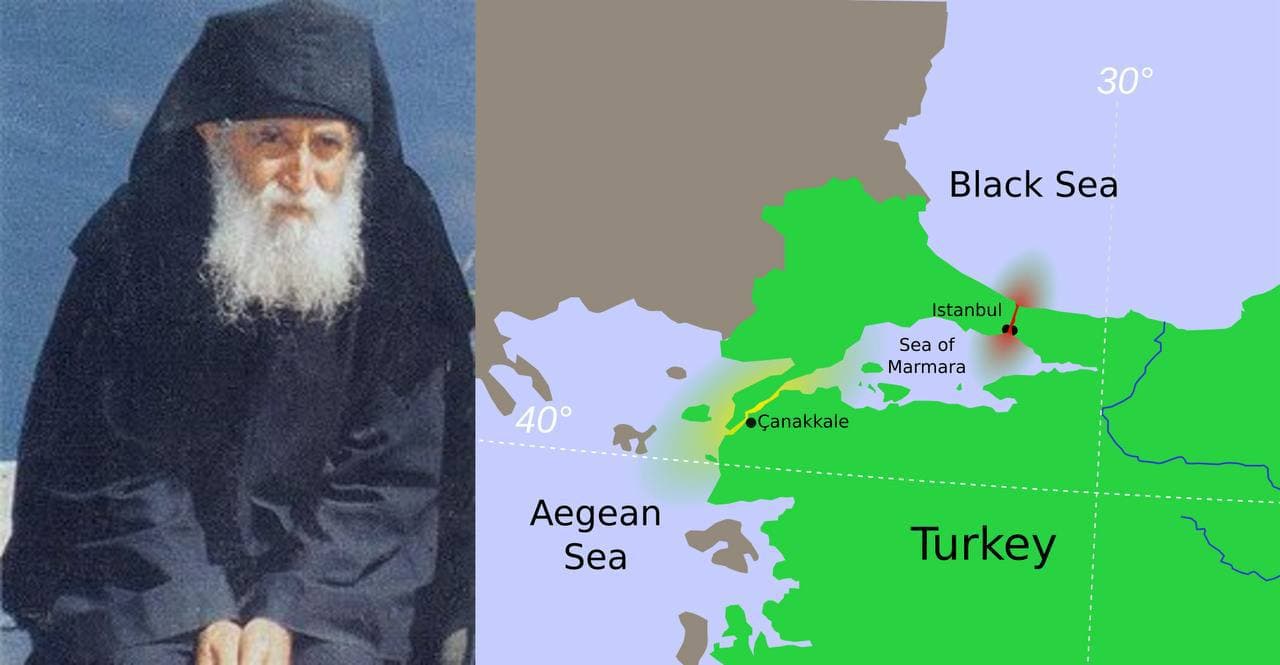Prophet of Mount Athos Warns: Future Conflict Could Reshape Turkey and Greece
St. Paisios of Mount Athos, a revered Orthodox Christian monk whose spiritual insights have captivated many, has become a focal point of discussion in light of rising tensions in Eastern Mediterranean geopolitics. His prophetic words regarding a potential future conflict involving Turkey and Greece have resurfaced, raising questions about the implications of such a scenario. According to St. Paisios, “Yes, there will be war, and Turkey will be struck from the north. It will suffer enormous destruction, but not a single Greek will be harmed. As for Constantinople, it will be administered by Russians, Greeks, and Europeans. This storm will reach as far as Israel, and then the Jews will realize their mistakes.”
Background & Context
The 20th-century monk, who passed away in 1994, is known for his deep spirituality and insightful reflections on the state of the world. His teachings often touch upon themes of conflict, redemption, and divine intervention, making his words particularly resonant amid contemporary geopolitical strife. The historical enmity between Greece and Turkey, rooted in centuries of territorial disputes and cultural clashes, has been exacerbated by recent developments in the Eastern Mediterranean, including energy exploration and military posturing.
As tensions escalate, particularly with Turkey"s assertive actions in contested waters, St. Paisios’s predictions have gained traction among both believers and skeptics. His assertion that Turkey would face a severe blow from the north has ignited discussions about the potential involvement of regional powers, including Russia, in any forthcoming conflict.
Key Developments
St. Paisios"s prophecies suggest a multifaceted conflict with broad implications. His mention of a northern strike against Turkey raises questions about the potential role of Russia, which has historically maintained a complex relationship with both Greece and Turkey. As previously reported, recent developments in the region have seen Russia expanding its influence, particularly in response to NATO"s activities and the ongoing crises in Ukraine and Syria.
The monk"s predictions extend beyond military conflict; they also encompass a political reconfiguration in the region. The prospect of Constantinople being administered by a coalition of Russians, Greeks, and Europeans reflects a significant shift in power dynamics that could redefine the historical narrative of the area. This notion resonates with current geopolitical tensions, especially as countries grapple with their roles in the face of emerging global challenges.
Broader Impact
The implications of St. Paisios"s predictions extend beyond the immediate region, touching on broader themes of faith, identity, and historical reckoning. His assertion that the conflict will "reach as far as Israel" suggests a ripple effect that could alter the geopolitical landscape significantly. As tensions rise in Gaza and surrounding areas, the historical context of Jewish-Christian-Muslim relations may come to the forefront, prompting a reevaluation of alliances and enmities.
Experts in geopolitics and religious studies have noted that St. Paisios"s words echo the sentiments of many in the Orthodox Christian community, who view these prophecies as not merely predictions but spiritual truths that reflect a divine plan. This perspective could influence public sentiment and political discourse in both Greece and Turkey, as well as among their allies. In light of ongoing tensions, including recent developments such as Netanyahu convening a security cabinet in response to escalating violence in Gaza, the prophetic insights of St. Paisios resonate with current events.
What"s Next
As geopolitical tensions continue to rise, the international community must grapple with the potential implications of St. Paisios"s predictions. Analysts are closely monitoring the situation, particularly with regards to Turkey"s military engagements and the responses of Greece and its allies. The potential for a conflict, as foreseen by St. Paisios, raises urgent questions about the future of regional stability and the roles of superpowers like Russia and the United States.
In the coming months, the actions of key players in the region will likely shape the trajectory of these prophetic insights. Policymakers and scholars will need to remain vigilant, assessing the evolving situation and its implications for historical grievances and future alliances. The world watches closely, aware that the echoes of the past may soon resonate in the present, reshaping the destinies of nations.




![[Video] Pope Leo XIV condemns anti-Christian violence in Nigeria, Bangladesh, and Damascus](/_next/image?url=%2Fapi%2Fimage%2Fthumbnails%2Fthumbnail-1768006244320-mmtpte-thumbnail.jpg&w=3840&q=75)


![[Video] Gunfire between Iraqi security forces and Sadr militias in Baghdad](/_next/image?url=%2Fapi%2Fimage%2Fthumbnails%2Fthumbnail-1768343508874-4redb-thumbnail.jpg&w=3840&q=75)
